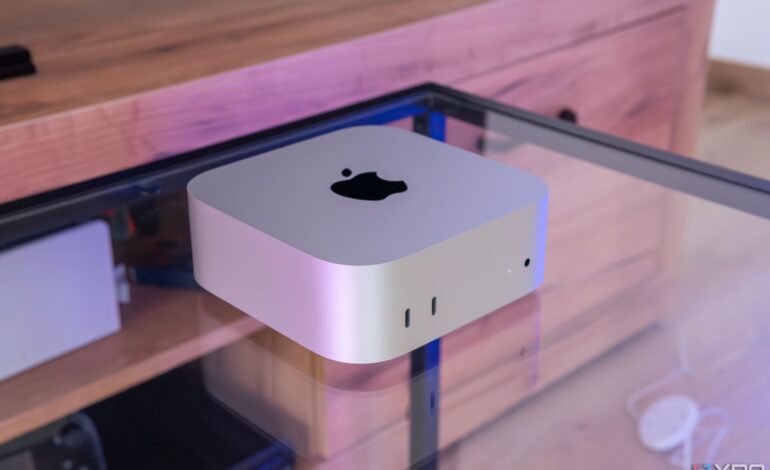Discover the Hidden Challenges of Daily Mini PC Use

Mini PCs are often celebrated for their space-saving designs and efficient performance, but several challenges can hinder users’ experiences. As someone who relies on an M4 Mac Mini for daily tasks, I appreciate the compact form factor of mini PCs. However, potential buyers should consider certain drawbacks that may affect their long-term satisfaction.
Noise Levels Can Be Surprising
One of the most significant issues with mini PCs is their noise output. Despite utilizing power-efficient processors typically found in laptops, these small computers can produce an unexpected amount of sound. During regular use, such as participating in a Discord call or having multiple browser tabs open, the fan may kick into high gear, creating a disruptive environment.
While mini PCs tend to operate quieter with Linux compared to Windows, this advantage diminishes when demanding tasks are introduced. The M4 Mac Mini stands out as an exception, maintaining a lower noise level even under stress. This is a noteworthy aspect for users who require a quiet workspace, especially in professional settings.
Power Supply Issues
Another often-overlooked aspect of mini PCs is their power supply. Unlike traditional desktops with integrated power supplies, many mini PCs come with external power bricks. This design can clutter workspaces and complicate cable management, an annoyance for users seeking an organized setup.
Fortunately, some models are beginning to adopt USB-C power options, allowing for more streamlined charging without bulky bricks. The Mac Mini exemplifies this innovation with its built-in power supply, enhancing both functionality and aesthetics.
Port Limitations and Peripheral Challenges
Despite their small size, mini PCs frequently come equipped with numerous ports, enabling users to connect various peripherals. However, as usage expands, the limitations of these ports become evident. Many Windows-based mini PCs lack sufficient USB Type-C ports, forcing users to resort to adapters or sacrifice peripheral connections.
For instance, while the Mac Mini offers five USB-C ports, users may still encounter issues during demanding tasks. In a recent live-streaming session, connectivity problems arose when using all available ports for devices like a monitor, webcam, and microphone. This illustrates the potential for bandwidth limitations that may frustrate users during critical tasks.
Brand Recognition and Support Challenges
A significant concern with many mini PC options revolves around brand recognition. Many mini PCs originate from lesser-known companies like Geekom and Minisforum, which may not provide the same level of customer support as established manufacturers such as HP, Lenovo, or Dell. Users may find it challenging to receive assistance for devices from brands with limited market presence, including potential language barriers in support services.
Additionally, reliability can be an issue. Recent reviews have highlighted concerns regarding Wi-Fi performance and display connectivity with these lesser-known brands. In contrast, major manufacturers often conduct thorough testing to ensure product reliability, minimizing the likelihood of encountering persistent troubleshooting issues.
Despite these challenges, the appeal of mini PCs remains strong. The space-saving benefits and streamlined appearance they offer are considerable advantages, particularly in smaller work environments. However, prospective buyers should be aware of the potential drawbacks associated with noise levels, power supply management, port limitations, and brand reliability.
As the market evolves, there is hope for more reputable brands to introduce higher-quality mini PCs. For those who prioritize compact design and functionality, the M4 Mac Mini currently stands as a leading option, but a broader range of competitive products would benefit consumers seeking alternatives. The desire for a diverse selection in the mini PC market is growing, and it will be interesting to see how manufacturers respond to this demand.






